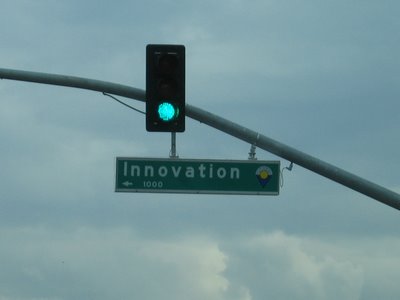 While people in Michigan mourn the loss of more than 205,000 manufacturing jobs in the past six years, a new report from a Lansing-based think tank finds "significant growth" in the state's knowledge economy.
While people in Michigan mourn the loss of more than 205,000 manufacturing jobs in the past six years, a new report from a Lansing-based think tank finds "significant growth" in the state's knowledge economy.Jobs in automotive manufacturing, motor parts supply, and steel mills continue to decline precipitously. But work in the recreation, business support, and health care industries is on the rise, according to A Look at Michigan's Emerging New Economy, published by Public Policy Associates, Inc. In fact, the report finds that, of the 122,500 jobs Michigan added during the past four years, some 55,000 of them were generated in sectors that represent new economy industries.
That certainly doesn't makeup for the nearly quarter-million jobs the state has shed. But the numbers illustrate a pattern and signal a shift in the state away from low-skill, low wage jobs and towards emerging economic sectors where higher education and pay are predominant. Think design, computer technology, finance. Similiar changes also are underway in Great Lakes states such as Ohio, Illinois, Pennsylvania, and New York, each of which lost between 170,000 and 200,000 manufacturing-related jobs in the new millenium.
Accelerating the transition, and capturing the new economy job opportunities, requires a fresh development strategy that supports aggressive investment in higher education, modern infrastructure like rapid transit and internet access, innovative ideas like alternative energy sources, as well as environmental restoration and protection.
The 21st century economy is defined by technology and mobility and uses information and new innovations as its essential raw material. Companies and talented workers are no longer bolted to a specific places by the need for resources such as iron ore (employment in MI steel mills dropped 19 percent in the past four years, according to the report). They can be almost anywhere.
As a result, among the critical assets workers and executives increasingly cite when choosing a place to locate are a clean environment, reasonable personal and municipal costs, convenient, energetic cities, and a high quality of life. Those places that offer such superior living conditions are turning out to be the nation's most prosperous and economically competitive.